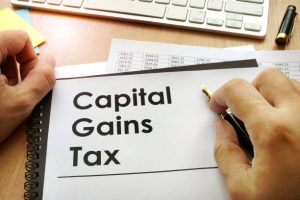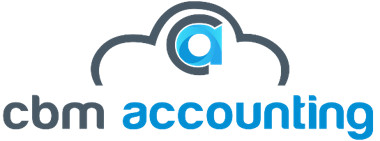The UK Government’s plans for taxation and COVID-19 support packages targeted at firms and individuals during the economy’s phased re-opening were laid out in Chancellor Rishi Sunak’s Budget on March 3rd.
The UK has borrowed an unprecedented £280 billion so far to safeguard critical areas of the national economy and the spending looks set to continue well into 2021.
Due to the faster COVID-19 vaccine program, the Office for Budget Responsibility (OBR) estimates that the UK’s economic recovery will be “swifter and more sustainable,” and that the UK economy will rise by 4% in 2021, rising to 7.3 percent in 2022. By mid-2022, the economy will have recovered to its pre-pandemic size, six months earlier than previously predicted.
The key announcements made in The Budget relating to the UK’s business community and the self-employed include:
Table of Contents
Self-Employment Income Support Scheme
Business Rates Reduction (England-only)
VAT for hospitality, holiday accommodation, and attractions
Income Tax Personal Allowance and the basic rate limit
Alcohol, fuel, and tobacco duties
Companies and Small Businesses
130% super-deduction tax relief
COVID-19 Support
Budget 2021 contained a number of extensions to the government’s existing COVID-19 assistance packages, as well as a number of new initiatives and incentives focused on safeguarding British jobs and livelihoods. Despite expanding the eligibility for the Self-Employed Income Support Scheme (SEISS), the Budget offered little consolation to the “forgotten millions” of freelancers and small businesses who continue to fall between the cracks of the SEISS and the Coronavirus Job Retention Scheme (CJRS).
Self-Employment Income Support Scheme
The fourth SEISS grant, covering February to April, will be paid in line with previous SEISS grants at 80% of average trading profits, up to a maximum of £2,500 a month.
The government’s funding will be tapered down in the fifth and final SEISS grant, which will run from May to September, focusing mostly on individuals who are still severely afflicted by the pandemic. Individuals whose turnover has decreased by 30% or more will continue to earn 80% of their three-month average trading profits, up to a maximum of £7,500. Where turnover has fallen by less than 30%, then the grant received will only be 30% and this will be capped at £2,850.
Individuals who were newly self-employed in the 2019/20 tax year were unable to receive the first three SEISS grants. However, since the deadline for 2019/20 self-assessment tax returns has elapsed, the Chancellor is making this demographic eligible for the fourth and fifth SEISS grants.
Furlough Scheme
Since the first nationwide lockdown in March 2020, the Coronavirus Job Retention System (commonly known as the furlough scheme) has protected over 11 million jobs. The furlough arrangement was supposed to end at the end of April 2021, but the Chancellor decided to prolong it until September. For hours not worked, employees will continue to receive 80% of their present income.
Crucially, employers will be required to pay 10% towards the hours their employees cannot work in July, followed by 20% in August and September. This is in addition to the employer’s national insurance and pension contributions they are already paying on hours not worked by employees.
Another key announcement was that eligibility for claiming under the furlough scheme will change from 1st May 2021. From that date an employer can claim for those who were employed on 2nd March 2021, as long as a PAYE RTI submission was made between 20th March 2020 and 2nd March 2021, notifying a payment of earnings for that employee.
Restart Grants for England
The government is creating Restart Grants, which are open to businesses across England, to help non-essential merchants, as well as the hotel and leisure sectors, reopen.
Non-essential retail firms can apply for up to £6,000 in cash subsidies per location, while hospitality, housing, leisure, personal care, and gym enterprises can apply for up to £18,000 per premises given their later reopening date.
Recovery Loan Scheme

With the deadline for applications under the Coronavirus Business Interruption and Bounce Back Loan Schemes set for March 31, 2021, eligible UK firms will welcome the launch of a new Recovery Loan Scheme in today’s budget (RLS).
Until the end of the year, UK firms of any size can apply for loans or overdrafts ranging from £25,000 to £10 million. Invoice and asset finance will also be available for amounts ranging from £1,000 to £10 million. The new scheme’s financing would be backed by an 80 percent government guarantee, encouraging banks to continue lending with confidence.
Business Rates Reduction (England-only)
The news that the 100 percent business rates holiday will be extended until June 30, 2021, has given a big boost to eligible retail, restaurant, and leisure enterprises across England. For the balance of the 2021-22 tax year, the Chancellor indicated that business rates will be discounted by two-thirds, subject to caps for bigger enterprises.
VAT for hospitality, holiday accommodation, and attractions
The reduction in VAT to 5% for the UK’s tourism and hospitality sector has been extended until 30th September. After this period, VAT for these sectors will rise to 12.5% for a further six months, before returning to the standard rate of 20% from April 2022. The Chancellor believes this VAT commitment will support 150,000 firms in the hospitality and tourism sector that employ over 2.4 million people.
Stamp Duty Holiday
The stamp duty holiday in England and Northern Ireland has been extended until 30th June, enabling the huge backlog of transactions to complete before midsummer. Stamp duty land tax (SDLT) remains suspended on the first £500,000 of all property sales.
Beyond 30th June 2021, the nil rate threshold for SDLT will be set at £250,000 until 30th September 2021 before returning to its usual threshold of £125,000 on 1st October 2021.
Mortgage Guarantee Scheme
The Chancellor also announced the introduction of a new low-deposit mortgage guarantee scheme, ushering in a new era of mortgages with a loan-to-value (LTV) of 95 percent. Since the outbreak of the coronavirus, most mortgage lenders have been hesitant to give mortgages with a loan-to-value ratio of more than 90%, forcing buyers to put down a 10% deposit.
The Government-backed scheme provides certainty to lenders to broaden their eligibility criteria to buyers with only modest deposits.
The new 95% mortgages available under the Mortgage Guarantee Scheme will be available on properties up to a value of £600,000.
If they desire, all buyers will be able to lock in their initial mortgage rate for at least five years under the scheme. The scheme, which will be accessible for new mortgages until December 31, 2022, will expand the availability of mortgages for persons with small deposits on new or existing houses.
Apprentices
From April 2021, the financial incentive for employers in England to hire new apprentices will rise from £1,500 to £2,000 per trainee, depending on their age, to £3,000 per apprentice. This is on top of the existing £1,000 payment for all new 16-18-year-old apprentices, as well as those under 25 with an Education, Health, and Care Plan.
A further £126 million has been set aside by the government for a new traineeship scheme aiming to enable more 16-24 year-olds to gain work placements in the 2021/22 academic year. In the next months, this expenditure is expected to fund the hiring of 40,000 more traineeships.
Taxation

The Chancellor has committed to continue to support the UK recovery but has also taken steps to balance the books and reduce the record deficit spending.
Individuals will be hit with a freeze on many allowances and personal tax rate bands.
While the raised corporate tax rate to 25% will be unwelcomed by businesses, the fact that it will not take effect until April 2023 will be welcomed. Smaller businesses will profit from the new Small Profits Rate, with only 10% of businesses likely to pay the new higher rate of 25%.
Businesses will also need to plan so they make maximum use of the new loss carry-back rules and a new temporary super-deduction for qualifying capital expenditure, which is available for companies.
We have highlighted below some of the main changes for individuals, companies, and small businesses.
Individuals
Income Tax Personal Allowance and the basic rate limit
The Personal Allowance and basic rate income tax limit are to be frozen at their 2021/22 levels for the next five years (up to and including 2025/26).
The Government intends to set the Personal Allowance at £12,570, and the basic rate limit at £37,700.
The point that you start to pay a higher rate tax, known as the higher rate threshold (the Personal Allowance added to the basic rate limit) will therefore be £50,270 for these years.
The National Insurance contributions Upper Earnings Limit and Upper Profits Limit will remain aligned to the higher rate income tax threshold at £50,270 for these years.
Inheritance tax (IHT)
The Government intend to maintain the IHT tax-free thresholds and the residence nil rate band taper available for Inheritance Tax at their 2020/21 tax year levels for the next 5 years (up to and including 2025/26).
This means qualifying estates can continue to pass on up to £500,000 and the qualifying estate of a surviving spouse or civil partner can potentially continue to pass on up to £1 million of assets without an Inheritance Tax liability.
Pensions – lifetime allowance
There is a limit on the total value of pension benefits you can build up without getting a tax charge when you come to draw your pension. This limit is known as the lifetime allowance and is currently £1,073,100. The Government intends to remove the link to the Consumer Price Index increase for the next five years and freeze the standard lifetime allowance at £1,073,100.
Capital Gains Tax

The Government intends to freeze the Capital Gains Tax annual exempt amount at its current level of £12,300 for individuals and personal representatives and £6,150 for most trustees of settlements for the next 5 years (up to and including 2025/26).
Universal credit
The £20-a-week Universal Credit uplift will continue for an additional six months.
Alcohol, fuel, and tobacco duties
Planned increases to alcohol duties have been suspended for a second year in succession and fuel duty has also been frozen for the 11th consecutive year, which will be welcome news as the economy begins to re-open.
Tobacco duty had previously increased by 2% plus inflation, with the rate for hand-rolling tobacco increasing by 6% plus inflation.
Companies and Small Businesses
Corporation tax
Corporation tax rates are to set rise from 19% to 25% in April 2023. The Government will introduce a new Small Profits Rate of 19% for companies with annual profits of £50,000 or less. Companies with profits between £50,000 and £250,000 will pay tax at the main rate of 25% reduced by a marginal relief providing a gradual increase in the effective Corporation Tax rate.
130% super-deduction tax relief
In a bid to encourage capital expenditure and business growth, the Chancellor has unveiled a new ‘Super Deduction’ tax relief.
This relief will only apply to companies and will not be available to sole traders or partnerships.
This measure will temporarily introduce increased reliefs for expenditure on plant and machinery. For qualifying capital expenditure incurred from 1st April 2021 up to 31st March 2023, companies can claim in the period of investment:
- a super-deduction providing allowances of 130% on most new plant and machinery investments that ordinarily qualify for 18% main rate writing down allowances
- This will generate an effective reduction in tax of 24.70p for every £1 spent
- the first-year allowance of 50% on most new plant and machinery investments that ordinarily qualify for 6% special rate writing down allowances (items such as integral assets like hot and cold water systems)
- This will generate an effective reduction in tax of 9.5p for every £1 spent
The annual investment allowance (AIA) limit will be £1 million for the period from 1st January to 31st December 2021.
As the super deduction will not be available to sole traders and unincorporated businesses, they will continue to claim the AIA on eligible capital expenditure.
It is worth noting that companies with special rate expenditure will only benefit from a 50% allowance. They may be better off allocating the AIA to special rate assets instead.
Losses
The trade loss carry-back regulations for unincorporated enterprises and organizations will be temporarily extended from one year to three years to assist viable businesses that have found themselves in a loss-making position.
Unincorporated enterprises and corporations that aren’t members of a corporate group will be permitted to carry back losses of up to £2 million in 2020/21 and 2021/22 groups.
Losses for companies that are members of a corporate group may be limited to £200,000 in some cases, although the group, as a whole, should still be entitled to the £2 million caps.
Research & Development (R&D)
For accounting periods commencing on or after April 1, 2021, the R&D tax credit for small and medium-sized firms will be capped at £20,000 plus three times the company’s total PAYE and NIC liabilities.
In the budget, the Chancellor also announced the start of a wide-ranging consultation on research and development (R&D) tax relief to ensure that the UK remains a competitive place for cutting-edge research and development.
Help to Grow Scheme
As part of the Chancellor’s vision for an investment-led recovery, the new Help to Grow scheme will provide industry-leading support to growing businesses. The Help to Grow Management program will offer world-class management training via business schools, with the Government contributing to 90% of training costs. Meanwhile the Help to Grow Digital program will provide free expert training and will be delivered by a combination of a voucher covering up to 50% of approved software costs up to a maximum of £5,000 with free online impartial advice.
This article is intended to inform rather than advise and is based on legislation and practice at the time. Taxpayer’s circumstances do vary and if you feel that the information provided is beneficial it is important that you contact us before implementation. If you take or do not take action as a result of reading this article, before receiving our written endorsement, we will accept no responsibility for any financial loss incurred.

